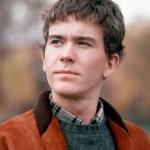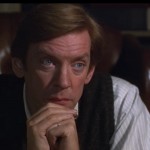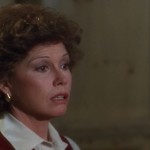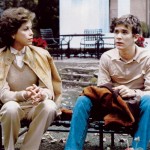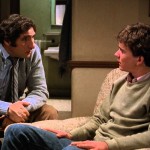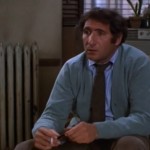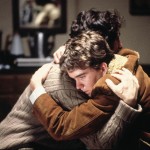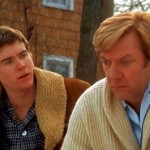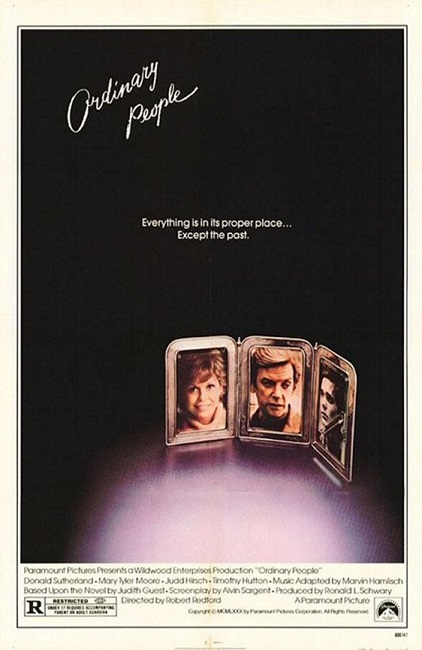
Ordinary People – 1980
I went into this movie knowing next to nothing about it. I knew that it starred Donald Sutherland, Mary Tyler Moore, Judd Hirsch, and Timothy Hutton – but that was about it. Then, before I watched it, a friend told me that it was a horrible movie. He said that it was a waste of film. So, I must admit that my expectations were low. After all, I was never a huge Donald Sutherland fan.
But I am pleased to say that I actually enjoyed the movie. It was a very heavy drama that was, at times, difficult to watch. It made me squirm in my seat. I wanted to pause the DVD and walk away. But I forced myself to stay and experience the film as the director had intended. You can’t walk away from life. You can’t walk away from the things that happen to ordinary people.
The drama centered around the Jarrett family. Sutherland played the father, Calvin. His wife, Beth, is played by Moore. And finally there is their remaining son, Conrad, played by a very young Hutton. I say remaining son because apparently there was another son who died in a sailing accident. To make matters worse, Conrad, dealing with post-traumatic stress disorder and survivor’s guilt, tried to commit suicide.
To make matters worse, Beth had always favored her first son, Buck, and always showed very little love to Conrad. This unfortunate behavior gets a hundred times worse after Buck’s death. She loses the ability to love anyone including her husband. To make matters worse, Calvin has no idea how to recognize, let alone deal with, the problems in his family. He has ideas of some of the things going on, but has very little conviction when it comes to finding solutions.
To make matters worse, Conrad is desperately reaching out for help in various ways and it seems as if he is slowly moving back towards the idea of suicide, a prospect that terrifies him. To make matters even worse, the only way his parents know how to deal with things is to put on happy faces and pretend that everything is, or will be, OK.
I quickly realized that this insanely dysfunctional family needed professional help, and the only one of them smart enough and brave enough to get that help is Conrad. Hutton really turned in a stellar performance. He was very young at the time, 19 years old when the filming took place, but he really stood out as a fantastic actor, even then. He made it easy for me to see his character’s problems. I knew what needed to be done. It was heart-wrenching to see what he was going through, knowing that, as an outside observer, I was powerless to help.
And yet, without his parent’s urging or even their support, Conrad contacted a professional psychiatrist, Dr. Berger, played by Hirsch. Hirsch also exceeded my expectations, doing a great job. I’ve never been to a psychiatrist, so I don’t know first-hand how they behave, but I thought his portrayal was pretty accurate according to what I might expect.
Interesting note: Hirsch’s performance has been praised by the psychiatric community because he was able to portray their profession in a positive light. Apparently, this is not how psychiatrists are normally shown. But of course, you can’t please everybody. There were a few psychiatrists who criticized him because his character was too positive, making him seem one-dimensional.
You see, like I said, the movie was stressful to watch, but it was OK because, in the end, progress was made and healing began. And most importantly, what needed to happen happened. At the end of the movie, Beth left. The mom left, and that was what needed to happen? Well, yes. I discovered that most of the problems that plagued the family stemmed from Beth’s inability to love her family after Buck’s death. Both Calvin and Conrad needed her emotionally, and she couldn’t give them anything.
The way she treated them was horrible. At one point, Conrad tried to tell his father that she hated him. Of course, Calvin’s automatic response was that she loved him, and Conrad knew that he wasn’t even listening to his cry for help. But eventually, even Calvin began to understand that his son had been right. Trying to be a good father and husband, he gave Beth several opportunities to get help, which she could not bring herself to accept. He all but begged her to talk to the psychiatrist. Even at the last when he told her exactly what I had been thinking about her for half the movie, how she was hurting everyone around her, making everyone miserable, her first and immediate response was to run away, rather than to face her own pain. But that is exactly what need to happen before Calvin and Conrad could begin to heal.
I was actually really impressed with Sutherland’s performance. I have never seen him in a role that allowed him to explore such deep emotions. I have gained a new respect for him as an actor. He was especially good in that last scene where he tells his wife how much she is hurting him and her son.
Moore also did a good job. In my eyes, she was the bad guy, and I spent half the movie wanting to strangle her. That tells me that she portrayed the character well. When she leaves at the end, I don’t think the audience is supposed to see it as a bad thing. Of course, it would have been better if she broke down and admitted her failures, and began to heal, herself. But she was so emotionally damaged, she couldn’t bring herself to do it, and I was glad when she left.
Interesting note: Mary Tyler Moore used this role to make a definite break from the TV roles she was most known for: Laura Petrie from the Dick Van Dyke Show, and Mary Richards from the Mary Tyler Moore Show.
Another face it was nice to see was Elizabeth McGovern. She played the part of Conrad’s love interest, Jeannine Pratt. She is beautiful, and a fine actress. She was also very young at the time, but was able to turn her minor supporting role into a character with a little depth and personality. Well done Elizabeth.
The director is actually a pretty big name in Hollywood. Actor Robert Redford made his directorial debut with Ordinary People, and he took home the Oscar for his efforts. Screenwriter Alvin Sargent won for Best Adapted Screenplay, and Hutton garnered a well-deserved Oscar for Best Supporting Actor. Moore was nominated for Best Supporting Actress and Hirsch was nominated for Best Supporting Actor, though neither of them won.
Interesting note: Donald Sutherland was not nominated for Best actor for his performance, though all three of his co-stars were in their respective categories. Some Academy Historians consider it to be one of the biggest snubs in Academy Award history.
This was Timothy Hutton’s first major role that really put him on the map. To say he did a great job was an understatement. He was really phenomenal. The night in which Conrad has his epiphany and realizes that his brother’s death was not his fault was such a moment of great relief. It was truly a cathartic breakthrough. The tears, the raw emotion, the sobbing, was all so real. As we all know, an outpouring of grief like that can sometimes be the best thing that can happen to someone who is in a lot of pain. The ability to forgive one’s self for the tragedies of the past is one of the hardest things for a person to achieve. And when that dam broke, the flood of deep, deep grief poured out from him in a way that brought tears to my eyes.
And lastly, I must mention the music, specifically the use of the classical piece, Pachelbel’s Canon. The music itself is a gentle round that is absolutely gorgeous in its simplicity. The repeating bass line provides a lush foundation for the melodic variations wandering above. It has a distinctly easy and insightful feel to it, and yet when coupled with images of the empty streets and perfect lawns of Lake Forest, Illinois, it is colored with a touch of melancholy. Using Pachelbel’s Canon was an inspired choice made by Mr. Redford.
Interesting note: Pachelbel’s Canon experienced a significant surge in popularity after the release of Ordinary People.
After watching the film, I understand the title. Sadly, terrible things happen to people every day. The movie explores how such a tragedy as the death of a family member can affect not only the stability of the family, but the emotional stability of its individual members. Things like this happen to ordinary people like you and me, and when they do, more often than not, a great deal of pain must be worked through before healing can happen. But there is hope. Help is out there, if we can but learn to accept it.
